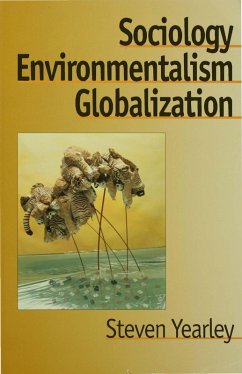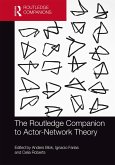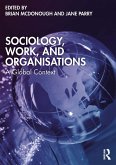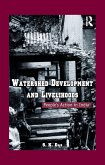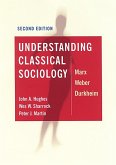This authoritative book brings together the sociologies of globalization and the environment in one volume. Steven Yearley argues that environmental issues have received scant attention in the general debate on globalization even though environmentalists have been very successful in capturing the language and imagery of the globe.
Dieser Download kann aus rechtlichen Gründen nur mit Rechnungsadresse in A, D ausgeliefert werden.
`The central theme at the heart of Yearley's very useful and welcome book is that while the links beteen globalisation and environmentalism appear to be both fundamental and indeed inevitable, in practice, and more often than not, they are highly problematical' - Work, Employment & Society
`Yearley's book begins with an apparentley absurd but skillfully developed discourse on what the idea of "giving money to the planet", taken from the top of a yoghurt pot means. This entirely justifies his bold subtitle and sets the scene for a survey of how useful sociological theories of globalization are in approaching the main problems of theorizing and researching the environment.... [Yearley] constructs some interesting arguments about globalization.... Yearley is correct in his assertion that very few globalization theorists have grappled with the environment as a research site, and this brief and lean book should show more of them what a rich site it is' - British Journal of Sociology
`The book deals with and improves our ability to deal with global issues and helps build the strength to transform international institutions into interactive bodies. The book will be essential reading for negotiators, political theorists, sociologists, environmental activists, and scientists alike, broadening their horizons' - Business Line
`Yearley takes a long look at the way in which ideas such as "think globally, act locally" spring from a mistaken assumption that we all mean the same thing when we discuss the world or global problems.... [Yearley] asserts that in capturing the moral high ground by claiming the planet for themselves, environmentalists are ignoring the fragmented nature of many of the problems they want to reslove. And the emotional construct hangs around the notion that we are all global now, united in the defence of planet Earth, obscures the real forces acting to damage the environment. Even the role of science as arbiter of quarrels about pollution, for example, is questioned' - New Scientist
`Yearley's book begins with an apparentley absurd but skillfully developed discourse on what the idea of "giving money to the planet", taken from the top of a yoghurt pot means. This entirely justifies his bold subtitle and sets the scene for a survey of how useful sociological theories of globalization are in approaching the main problems of theorizing and researching the environment.... [Yearley] constructs some interesting arguments about globalization.... Yearley is correct in his assertion that very few globalization theorists have grappled with the environment as a research site, and this brief and lean book should show more of them what a rich site it is' - British Journal of Sociology
`The book deals with and improves our ability to deal with global issues and helps build the strength to transform international institutions into interactive bodies. The book will be essential reading for negotiators, political theorists, sociologists, environmental activists, and scientists alike, broadening their horizons' - Business Line
`Yearley takes a long look at the way in which ideas such as "think globally, act locally" spring from a mistaken assumption that we all mean the same thing when we discuss the world or global problems.... [Yearley] asserts that in capturing the moral high ground by claiming the planet for themselves, environmentalists are ignoring the fragmented nature of many of the problems they want to reslove. And the emotional construct hangs around the notion that we are all global now, united in the defence of planet Earth, obscures the real forces acting to damage the environment. Even the role of science as arbiter of quarrels about pollution, for example, is questioned' - New Scientist

